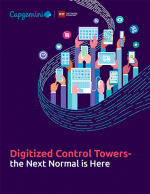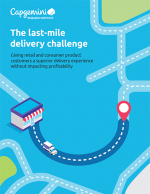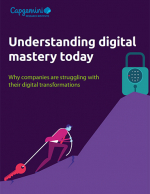The 21st Annual, 2017 Third-Party Logistics Study
The results and findings of the 2017 21st Annual Third-Party Logistics Study provide current perspectives on the nature of shipper and 3PL relationships, why they are generally successful and some of the ways in which they could be improved.
The 2017 21st Annual Third-Party Logistics Study shows that shippers and their third-party logistics providers continue to move away from primarily transactional relationships and toward meaningful partnerships.
Since the study began 21 years ago, researchers have seen the continued improvement in the strategic nature of relationships between shippers and third-party logistics providers.
This year’s survey suggests 3PLs and their customers continue to improve the quality of their relationships.
Both parties - 91% of 3PL users and 97% of 3PL providers - reported that their relationships are successful and that their work is yielding positive results.
The 2017 3PL Study showed that 75% of those who use logistics services (shippers) and 93% of 3PL providers said the use of 3PL services has contributed to overall logistics cost reductions, and 86% of shippers and 98% of 3PL providers said the use of 3PLs has contributed to improved customer service.
Moreover, the majority of both groups - 73% of shippers and 90% of 3PL providers - said 3PLs offer new and innovative ways to improve logistics effectiveness.
The topic of alignment remains relevant, and shippers and 3PLs agreed on the importance of openness, transparency and effective communication to overall success.
Among respondents, 44% of shippers and 86% of 3PL providers agree that collaborating with other companies, even competitors, to achieve logistics cost and service improvements holds value.
This year’s results show that as 3PL offerings mature, shippers are increasingly taking advantage of logistics providers’ expertise. Again this year, the most frequently outsourced activities continue to be those that are more transactional, operational and repetitive.
Activities that are strategic, IT-intensive and customer-facing tend to be outsourced to a lesser extent. However, even outsourcing in those categories is increasing over historical values.
IT services are becoming a differentiating factor that 3PLs use to their advantage. Shippers continue to rely heavily on the IT services that 3PLs provide, and the ability to manage the provision of IT-based services is a necessary core competency of 3PL providers.
While the “IT Gap” - the difference between what shippers feel is important and their ratings of their 3PLs’ current IT capabilities - has stabilized, further opportunities for improvement remain.
The 3PL sector continues to increase globally, in terms of both revenue and coverage, and 3PL providers are refining and expanding their core competencies to improve and grow their offerings.
New demands from consumers and shippers will drive the industry to continue to evolve.
What’s Related




Favorites





